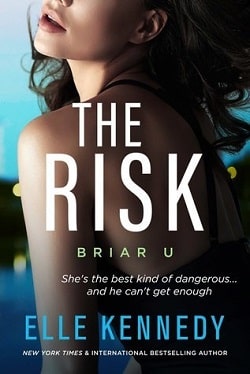“Bliss,” Julian murmured after the third such encounter. Melissa simply smiled, and they strolled on.
They found a grassy spot shaded by an old oak and spread the picnic blanket and sat. After staring out and up and commenting on the kites that, despite the feeble breeze, several children had managed to get aloft, they turned to the basket and unpacked the repast Julian’s cook had—clearly—taken great pride in assembling. There were small game pies, with light flaky pastry and a succulent filling, golden cheese balls, roast chicken, hard-boiled quail eggs, several other delicacies, fresh crusty bread, cheddar cheese, dried apples and pears, and a bottle of sweet wine and several bottles of cider with which to wash everything down.
“Hmm.” Melissa closed her eyes and savored the tastes bursting on her tongue. She swallowed, then opened her eyes and studied the small pie. “These are scrumptious. You must convey my compliments to your cook.”
Propped on one elbow and demolishing his own pie, Julian nodded. “I convey mine regularly. Usually daily. She’s a gem.”
“I have to say, I’m always torn by the arguments over which is better, French—or at least French-trained—chefs, usually male, or English cooks, usually female. While I appreciate and approve of some of the French-inspired dishes, I’ve generally found, especially when in the country, that local cooks do better, especially those willing to incorporate some of the continental ideas into their own recipes.”
Julian held up another of the delicious delights—a quail breast stuffed with prunes and nuts—in illustration. “My thoughts exactly.”
Many of the children had been taken home for their luncheons or had been called to attend family groups picnicking under the trees. The March sun had decided to rule the day and was beaming down, warm enough to make the temperature pleasant.
She continued to nibble on the pie, then dusted off her fingers and reached for the next morsel. “When you were young, did you come here with your brothers?”
He nodded. “A few times during each of the years that we came down with our parents. Of course, we were more interested in viewing the navy ships that are docked just a little farther along.”
She softly huffed. “We only came here twice—I think because the second time, Christopher fell into the river. Before we’d had our picnic.”
Julian chuckled. “With three boys to keep occupied, I think our nursemaids and later our tutors were always glad to bring us here—plenty of space to run off excess energy, and then there were the ships and, when we were somewhat older, the observatory to visit.” He turned to look at her. “So if you didn’t come here, where did you go? Or rather, get taken?”
“The Royal Menagerie, countless times. Christopher was fascinated with the lions. Mandy and I always found the rooks frightening, but as Christopher was completely oblivious to their threat, as older sisters, we had to keep our upper lips stiff.”
He laughed. They returned their gazes to the lawns before them just as two young boys ran out from the trees, bowling a hoop along.
Julian pointed. “I remember doing that and not just here. All around Hyde Park as well. Once, Felix and I lost control of our hoop, and it bowled across the avenue and caused a team to rear and set the ladies in the carriage screeching—literally sent them into hysterics. No real calamity, but we grabbed the hoop and raced home, utterly breathless from laughing.” Grinning, he met her eyes. “Boys will be boys, and the footmen with us couldn’t stop laughing, either.”
They continued exchanging memories and anecdotes as they ate and drank.
Once the food was reduced to mere crumbs, Julian reclined on one elbow and sipped the last of the wine, while Melissa sat upright, her legs stretched before her and her ankles crossed, and cradled a pottery mug of the cider.
With post-prandial peace washing over him, he looked across the neat lawns toward the river and the taller buildings of the city, visible in the distance.
He sipped, then, keeping his gaze on the view, said, “All this talk of us being the perfect match—what do you think people mean by that?”
From the corner of his eye, he saw her lightly shrug.
“I suspect,” she said, “that the phrase means different things to different people.”
“Such as?”
She thought, then offered, “Mutual respect. A working partnership based on each other’s strengths. A relationship that works for both parties. A solid foundation both can rely on. That, and always having the other’s support.”
Without shifting his gaze, he quietly said, “And love?”
He sensed her swift glance, then she inclined her head. “For many, that, too.”
“And for you?” He turned his head and met her eyes. “What does a perfect match mean to you?”
For a long moment, she held his gaze, then said, “I haven’t used that term to describe us.”
He dipped his head in acknowledgment. “Nevertheless.”
She sighed softly and looked out, over the lawns. “I seriously doubt anyone or anything that’s human-based is ever truly perfect. That’s simply asking too much.”
“You’ll get no argument from me on that score, yet…whatever’s between us, perfect match or not, I suspect it’s time we started defining what, in that mutual connection, however one wishes to describe it, is important to us. To each of us. In what lies between us, what does each of us value?”
He waited until, faint puzzlement in her eyes, she again met his gaze, then he stated, “They haven’t yet started to actively press us, but soon, they will.”















